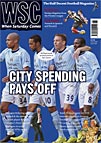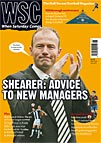 Bolton chairman Phil Gartside is in favour of a new division consisting of teams outside the upper echelons of the Premiership. Unfortunately for him it appears he may be one of very few, as Roger Titford explains
Bolton chairman Phil Gartside is in favour of a new division consisting of teams outside the upper echelons of the Premiership. Unfortunately for him it appears he may be one of very few, as Roger Titford explains
Property developers and farmers with a couple of well-situated fields never give up looking for planning permission. Every so often they come back with yet another application. Footballing conservationists will feel the same way about the idea floated by Phil Gartside, the Bolton chairman, that Rangers and Celtic should be invited to join a newly formed 18-club Premier League Two in 2014-15. At the same time the Premier League would be reduced from 20 to 18 clubs. The scheme was unveiled in the Sunday Mirror on April 19 as the Beginning Of The Next Revolution although in an accompanying piece, columnist Michael Calvin decried it as a “morally bankrupt plan to take the money and run”. There was a similar response throughout almost all of the press coverage – “Gartside’s ideas are barmy and destructive,” said Mick Dennis in the Express – with the Guardian’s Lawrence Donegan one of the few to suggest that the idea should be taken seriously: “The truth is that the Old Firm would bring a great deal to English football, the most significant aspect of which would be a following that exceeds all but one or two of the current Premier League teams.”
